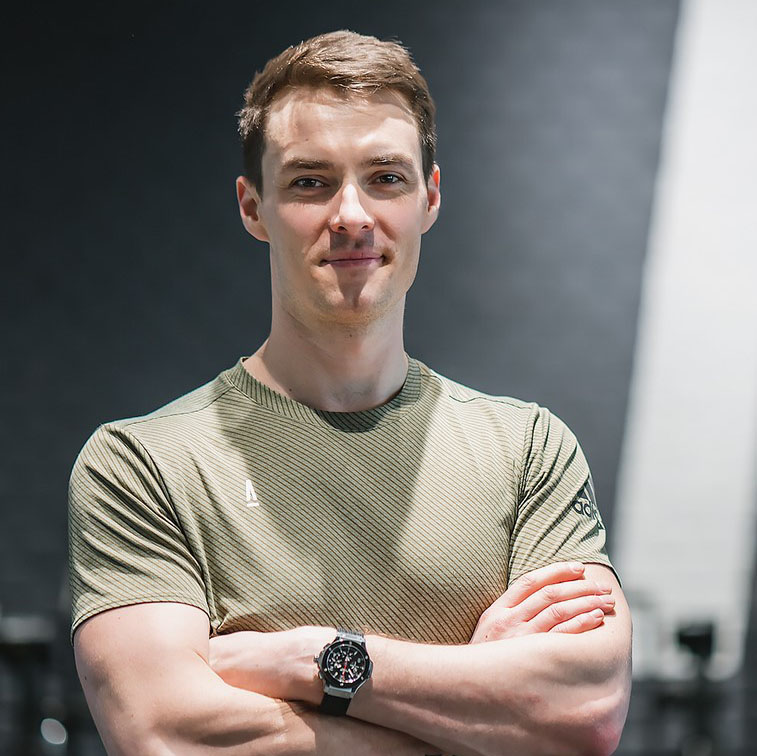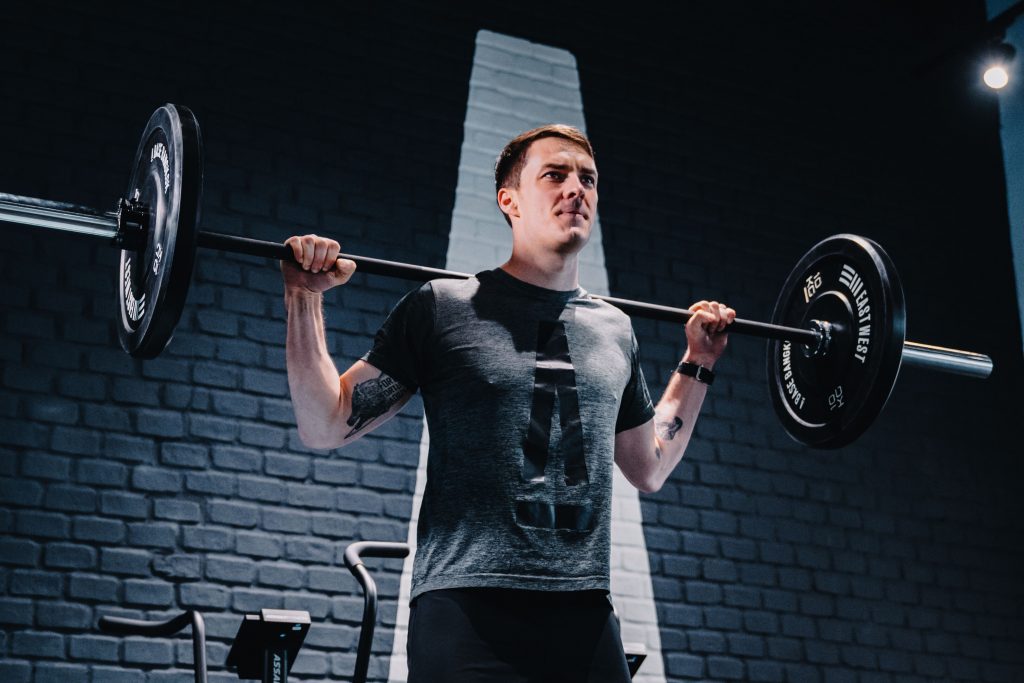The 80/20 Rule of Success, with BASE Fitness Manager Jeff
Jack Thomas talks to BASE Fitness Manager Jeff about his story, the 80/20 rule of success and what common traits he sees in those that get the best results.
What’s Jeff’s 80/20 rule of training success? Find out, with the BASE Amarin fitness manager.
How did you find yourself in Bangkok?
I guess it’s going on six years now that I’ve been in Bangkok, Thailand. It started out as a gap year for me. I’m from Louisiana, where the fitness industry is small and I kind of got fed up with the industry there. So I saved up some money and went to take a gap year. I travelled to Europe for as long as possible and then taught English in Southeast Asia for a year and then went home.
So I made it about 9 months traveling through Europe. Then I went to Asia and taught English for a little bit. Thailand was my first stop and I got a teaching job right away. Pay, of course, wasn’t great. I ended up doing that for about a year and a half. Then I realized this isn’t really going to get me where I want to go in life.
So I thought, there’s some good gyms here. Let me see if I can get a job working at a gym at first place. I set up a fitness website, I was doing some online coaching. I trained at a gym for two years and then ended up coming to BASE for over two years now. So it’s been a good experience and a great two years.
How did you get into fitness? Did you already have a background in fitness before you came here?
I have my degree in kinesiology and exercise science I was changing my major sophomore year in college. I was doing business administration, but I couldn’t stand the business classes. I took a few fitness classes and just loved it. So that’s what really started me in the fitness industry though.
When it was sophomore year I wanted to play sports, so I joined the lacrosse and the track team. It was summer in Louisiana and we have lacrosse tryouts. I remember there was one guy takes the shirt off and all students were start taking their shirt off. Afterwards, I was talking to my female friend and I remember her just making fun of me saying that I was so white and out of shape. Luckily, I made the team but it was at that point forward I’d realized that I want to look good and better start training seriously for it. That was just a big motivating factor for me.
What helped me was my mom because she was into fitness as well. So we would go to the military base gym. The gym open up at 4:00 AM and I would go 5 days a week. I would train and then go to school and then we’d have lacrosse practice afterwards. I’d stuck with this routine for years and years. In my junior year, I actually won the competition. It’s amazing that you can accomplish when you have a passion for it and a little bit of motivation to just push you through it. That’s really what got me started in the industry.
You’re obviously very experienced and you have a degree in exercise science. Interested to get some of your thoughts on training. Tell us a bit more about your 80/20 principle for training?
So 80/20 came about because when I was in university, we did a lot of strength and conditioning classes. When we talk about strength and conditioning, it’s more focused on the athletic realm of training. One common theme that you’re constantly preached in school is sports specificity. What that means is if you’re going to be a runner and you want to be good at running, you need to do a lot of running. The same principle can be used whenever you’re training clients and really kind of any goal that you have. You can apply that 80/20 principle, it’s all about being specific to your goal.
If you want to build strength, let’s take 10 lifts that you’re going to do for a workout. Take 2 of those lifts, which would be about 20% of the entire lift that you’re doing. You need to put 80% of your effort into those 2 lifts and they need to be very specific to your goals. So if you want to get stronger, we’ll use powerlifting as an example. They do three primary lifts; squat, bench and deadlift. For a powerlifter, 80% of their training goes into those three lifts, which we’ll say is about 20% of their overall lifts. Other than that will do an accessory work, such as cardio conditioning.
Basically, try to eliminate all the fluff from your program and focus on a few specific things. You really need to try to specialize in something that’s towards your goals. For example, if you’re a runner but you do strength training five days a week, it’s going to be good, but not great. So 80% of your effort needs to be in running or some type of intervals and distance running. Then the other 20% is accessory work, keep your program balanced and keep you from getting injured.

View BASE fitness manager and coach Jeff’s profile
What if a client’s goals are a little bit more general? Does the 80/20 rule still applies to them?
Absolutely. I would say the majority of my clients, they come in not really sure what they want to do. They just want to get healthy. What we do is we’ll take 80% of our effort and put it into movement patterns and then at the end of the program, we’ll start doing all extra core work etc. For the general population, it’s that 80% of your efforts should be focused on getting things that you really good at, such as those movement patterns and what we call functional movements.
Tell us a bit more about some of your clients. A few of the successful traits that you see in your clients that get good results?
A lot of my clients show up early to get ready before the session. I eventually train them how to do the warmup on their own. I usually have back-to-back clients. When I’m finishing up with my client, my other client will be in there and I can watch them do their warmup. But I’m still focusing my attention on my current client.
The point of they show up early is to get warmed up so by the time we get started, we have that entire hour and go straight into training. It’s just a time saver and you’ll be able to get more results.
Do you think show up early and be motivated go hand in hand? Or do you think one kind of helps the other?
I’d say yes, in 95% of the cases. I do have cases where people show up on time or a few minutes late and they’re able to have a killer session. I also have people that show up early and it’s still dragging their feet through the session. But 95% of the time just showing up early is putting in that extra effort and that just snowballs into the entire workout. But it’s that taking those first few steps, which are probably the hardest and just show up on time or early.
What I love about that is they can use the whole hour focused on the 80%. It ends up being better value for them to get ready and they can spend that whole 60 minutes with you.
Tell us about one client. Give us a specific example of someone who’s really got great results from you or someone that you’re really super proud of.
I have one client, we’ve been training together for three months. He’s getting ready for his wedding. When I first met him, I remember he looked very pale and very out of shape. After talking to him, he starts telling me that he was doing the keto diet and intermittent fasting. He’s been doing yoga for the last few months and lost a ton of weight. He was in Canada at the time and then came back to Thailand. First thing that his wife asked him is ‘Are you okay? You look sick’. He’s thought that he have lost all his weight and thought she would be happy. He thought it would look good. So then he comes in to see me and told me about all of this.
We start to develop trust and I tell him that I can take him through this program. He buys 25 sessions right away, it’s an awesome commitment. He shows up early on the first day, which is a good start. We start training and talking about nutrition, getting them on a right diet, and trying to change up his intermittent fasting schedule a little bit. Nothing against those two diets. If they worked for you, go for it. But for him, we needed to change it up. Since he’s training harder now. I remember he was start squatting about 30 kg for 4-5 reps and now he can do 75kg for 8 sets. He absolutely crushing it after three months and consistently showed up early every single day.
One thing that was awesome was he was getting fitted for a suit. Before we started training, he told me about it and I told him that we’re going to be putting on weight and muscle. So wait before you get measured in a few months. So he goes and he tells the tailor that he going to be training. He told me that the tailor was scoffing and laughing at it. Three months later he goes into the tailor and they had to completely change his suit sizes. He’d filled out the pants, the butt, the shoulders and the arms. It was basically he had to get remeasured all over again and the tailor was just so blown away.

Jeff, if you’re stuck on a desert Island. You can only have one piece of training equipment for the rest of your life. What would it be?
That’s a tough one. Obviously I’ve got my body weight, maybe a branch for pull ups. It’s a tough one between kettlebells and TRX. I would say I’d probably go with a kettlebell if I could have adjustable weights on that. So if it’s only one piece of equipment, I’d probably go with the TRX just because of its versatility. But if I had multiple weights, I would be able to go with a kettlebell for sure.
Can you please give the listeners one advice on how they can live their strongest Bangkok life?
Bangkok can be a very fun city. Obviously it’s got the night life and the party life. But it’s also got an awesome growing fitness industry and I think if you can strike a balance between all of that. Maintain your stress levels and a good way to eat healthy here, then you can definitely live in excellent health. There’s lots of people finding that balance between fun and being healthy. It can go hand in hand. I think one of the biggest things is just stay regular with your workouts. Don’t overdo the partying and I think you’d be just fine.
BASE RESOURCES
Contact us: [email protected]
BASE Facebook: facebook.com/basebangkok
BASE Instagram: instagram.com/basebangkok
GUEST RESOURCES
COACH JEFF ON INSTAGRAM
CONTACT COACH JEFF: [email protected]


